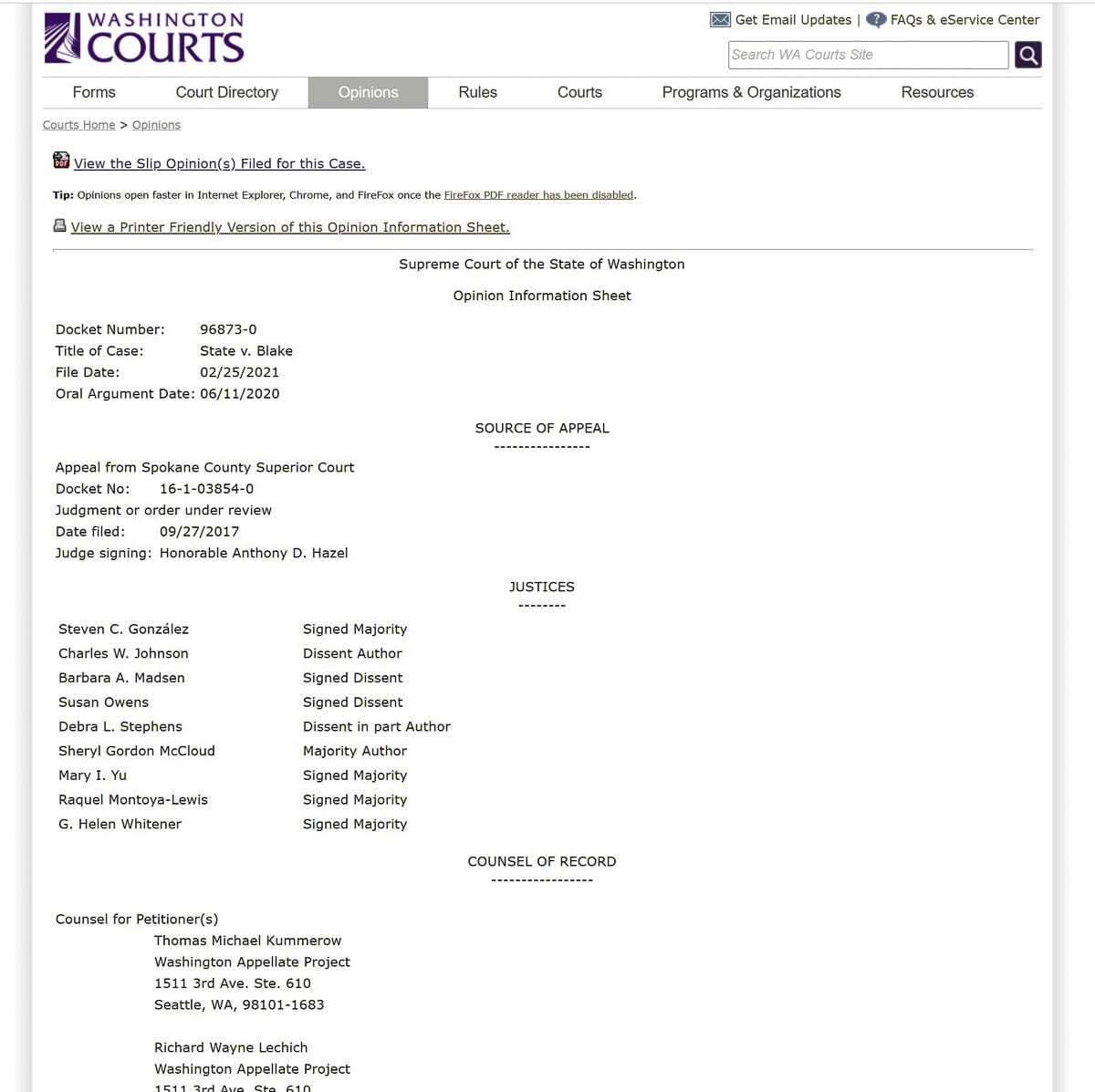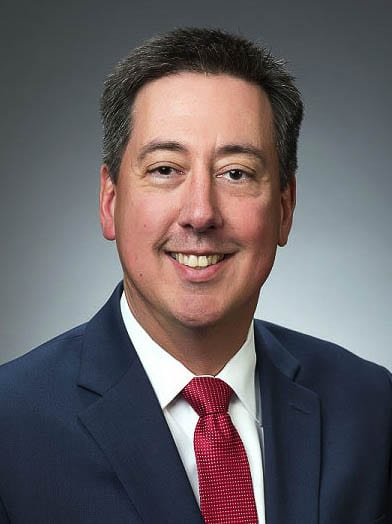Law enforcement has been instructed to no longer make arrests for simple possession of controlled substances
Area law enforcement officials are scrambling to respond to a Thursday ruling by the Washington State Supreme Court that voids Washington’s simple possession of controlled substance statute.

According to the Washington Association of Sheriffs and Police Chiefs (WASPC), effective immediately, Washington law enforcement officers “are no longer authorized to conduct a criminal investigation, effect an arrest, seek a search warrant, or take any other law enforcement action for simple possession of controlled substances.”
“We’ve been directed, at least until otherwise advised, not to make arrests for simple possession of controlled substances when it’s just a possession charge,’’ Sgt. Alex Schoening of the Clark County Sheriff’s Office (CCSO) told Clark County Today on Friday. “If drugs are seized during an arrest, we are to destroy them. We can not return them or give them to someone else because that would make us complicit in delivery of a controlled substance.’’
The Washington Supreme Court was divided on its decision to strike down the longstanding law that made it a felony to possess illegal drugs, even if the person in possession didn’t know they had them. A majority of five judges were in favor of the ruling. The court used the 2016 arrest of a Spokane woman, Shannon Blake, to revisit the drug possession law, which was adopted by the Washington State Legislature in the 1950s.

“The Washington State Supreme Court decision in State v. Blake certainly came as a surprise to all of us in law enforcement,’’ Sgt. Kim Kapp, of the Vancouver Police Department, told Clark County Today Friday. “This decision certainly challenges expectations for the safety of our communities. As interpreted now, the mere possession of controlled substances, such as methamphetamine in any amount, to include more than personal use, is no longer a violation or crime.’’
The WASPC also believes that prosecutors will soon arrange for the immediate release of all pre-trial detainees whose only charged offenses are simple possession and obtain orders vacating the judgments of all inmates in jails who are currently only serving time on simple possession.

Clark County Prosecuting Attorney Tony Golik told Clark County Today that he had been in communication with Clark County Jail staff. However, Golik said he could not confirm whether any inmates had been released as a result of the State Supreme Court ruling but said it was likely that a few may have been. Golik pointed out that, due to COVID-19, most who have been charged with simple possession of controlled substances, have not been held in jail pending trial. Instead, they likely were granted supervised release.
Like law enforcement officials, Golik and his staff members have been scrambling to react to the Supreme Court ruling.
“We have the immediate work that we’re handling this week dealing with cases that are in the system right now,’’ Golik said. “Like every prosecutor’s office, we have a lot of pending cases where the charge is a simple possession and the Supreme Court has found that that statute is unconstitutional.
“The long-term ramifications are more difficult to assess and likely will have a much greater impact on our work in the foreseeable future,’’ Golik added. “That’s related to determinations on retroactivity, which there is still some disagreement on and prosecutor’s statewide are working on that issue. They’re assuming retroactivity, so we will have a lot of resentencing work because drug possession is a common conviction that counts in an offender’s score. So, if offender’s scores have to be recalculated, that could result in a great many resentencing hearings.’’
Golik said he thought there would be more clarity in the next couple of weeks on the issue of retroactivity. “There certainly is a strong school of thought indicating this is retroactive,’’ he said.
The Clark County drug court offers treatment and other recovery support services to help participants treat underlying substance abuse, mental health and/or co-occurring disorders while under the supervision of the court. The mission for each program is to help participants to get re-established in the community; improve skills and self-sufficiency; reduce cycle of addiction and crime; and help restore and reunite families.
Golik said about 20 percent of the just over 100 people currently participating in Clark County drug court are doing so after a simple possession of a controlled substance charge. So, those with no other charges will be impacted by Thursday’s Supreme Court ruling.
“For many years now, law enforcement has supported treatment programs and counseling for people (who) have drug addictions rather than incarceration,’’ Kapp said. “Programs such as drug court have encouraged those who are drug-affected to seek treatment. Entry into these programs generally begins with an arrest for controlled substance possession. Now, unless the legislature takes action, these programs are at risk, which is not helpful for those who cannot find a way out of their addiction. There will be no incentive as the violation has now disappeared.’’
Golik strongly stated that there needs to be a legislative fix to the current situation created by Thursday’s ruling.
“I’m aware there are already bills being dropped,’’ Golik said. “I’m hopeful the legislature takes this issue up and passes a new law. I’m sure there will be competing ideas of what the legislature should do. The Supreme Court ruled that this possession statute was unconstitutional because it didn’t have a knowledge requirement. The legislature could simply add a knowledge requirement, but that would certainly be up to the legislature on what passes. There are all sorts of competing interests and ideas in this session. But, I can’t imagine the legislature won’t do something.’’
Golik also stressed that only the simple charge of possession of a controlled substance was impacted by Thursday’s ruling. Possession with intent to deliver or delivering a controlled substance are still criminal offenses and were not impacted by the Supreme Court’s decision.




